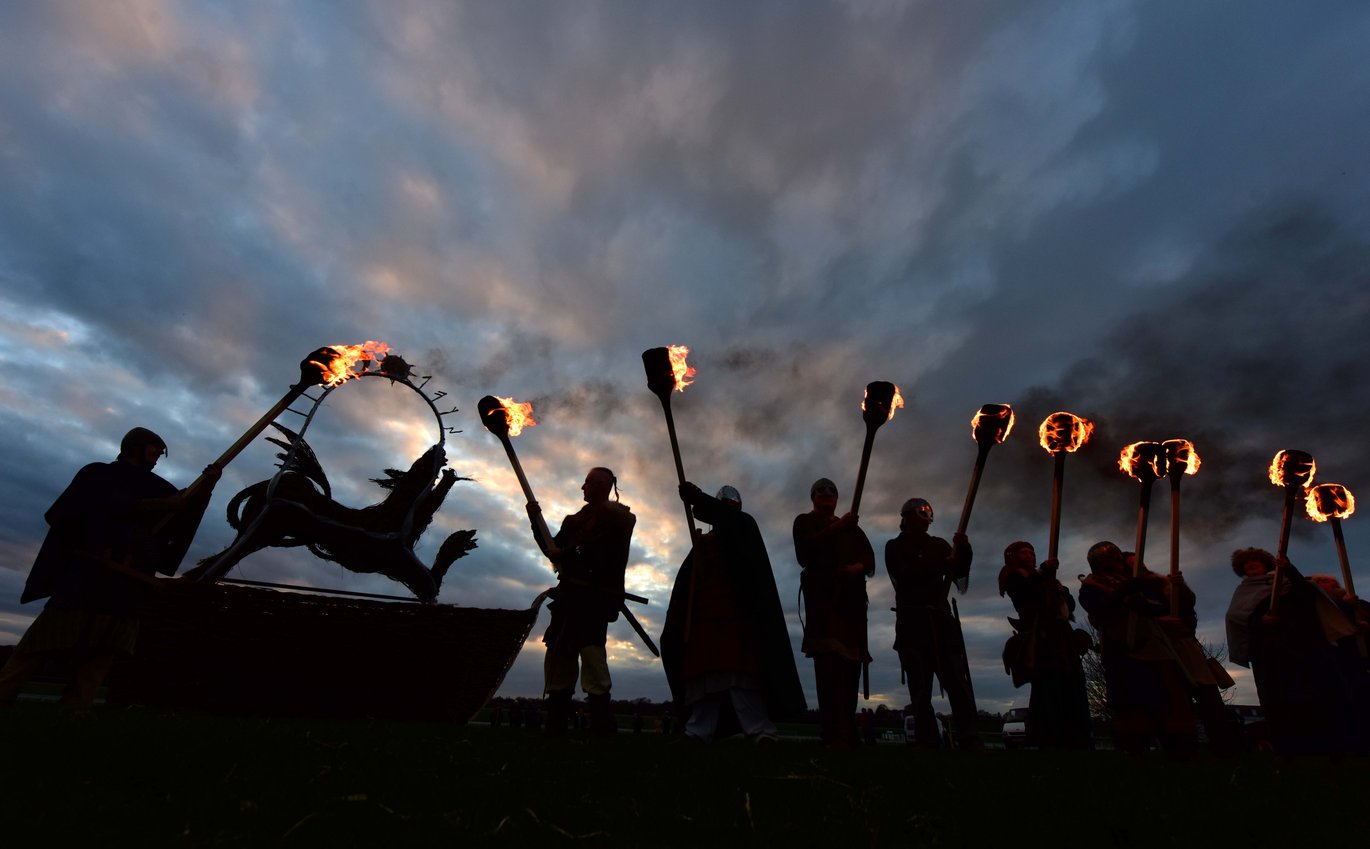Podcast: The Vikings and Capitalism
In this podcast, medieval historian from Aarhus University Richard Cole explores why the Viking era is ‘up for grabs’, and zooms in on why and how some business gurus have latched on to truths, half-truths, and fallacies about the Vikings.

In the ninth century, the word ”viking” in many parts of Europe would have conjured up a terrifying image of violent maurauders teeming forth from their longships and inflicting unspeakable carnage. Today, the word ”viking” is invoked in all sorts of contexts, from underwear and hand-dryer brands to the fantasies of business and management leaders and onwards to home DNA testing kits and their seductive promise of ”Viking heritage”.
In this podcast, medieval historian from Aarhus University Richard Cole explores why the Viking era is ‘up for grabs’, and zooms in on why and how some business gurus have latched on to truths, half-truths, and fallacies about the Vikings. In doing so, we explore the paradox that although capitalists may not be able to tell us much about the Vikings, the Vikings end up telling us unexpected things about capitalists.
Warning!: Your preconceptions of the Vikings may be challenged by listening to this podcast!
Richard Cole is interviewed by editor of nordics.info Nicola Witcombe, and the podcast was recorded in November 2020 at the department for history at Aarhus University.
Podcast
When was the Middle Ages?
|
When was the Viking Age?
|
Here is a list of some of the books and places mentioned in the podcast:
- Alaric Hall, Útrásarvíkingar: The Literature of the Icelandic Financial Crisis (2008-2014) (NY: Punctum, 2020).
- Andrew Wawn, The Vikings and the Victorians: Inventing the Old North in 19th-Century Britain (D.S. Brewer, Cambridge; 2000).
- Chris Shern and Henrik Jeberg, Return of the Vikings: Nordic Leadership in Times of Extreme Change (Pædagogik Forlag, 2018).
- David Graeber, The Utopia of Rules: On Technology, Stupidity, and the Secret Joys of Bureaucracy (Melville House, 2015).
- Rosalie and Murray Wax, ‘The Vikings and the Rise of Capitalism’, American Journal of Sociology (1955) 61,1 pp. 1-10.
- Steve Strid and Claes Andréasson, The Viking Manifesto: The Scandinavian Approach to Business and Blasphemy (Marshall Cavendish Limited, 2008).
- Max Weber, The Protestant Ethic and the ”Spirit” of Capitalism, trans. Peter Baehr & Gordon C. Wells (London: Penguin Books, 2002)
- Viking Museum, Aarhus, Denmark
- The TV show Vikings (started 2013, now on the 6th and final season. Watch a trailer to the final season by clicking here.)
- Yorvik Viking Centre, York, UK
Further reading:
- Chris Wickham, ”Passages to Feudalism in Medieval Scandinavia” in Studies on Pre-Capitalist Modes of Production. Ed. Laura de Graca & Andrea Zingarelli (Leiden: Brill, 2015) pp. 141-157.
- Caitlin Ellis, ”Remembering the Vikings: Violence, institutional memory and the instruments of history”, History Compass (2020).
- Ja. Gurevitsj, Frihet og føydalisme. Fra sovjetisk forskning i norsk middelalderhistorie [Freedom and feudalism. From Soviet research into Norwegian medieval history] trans. Karin Saastad, ed. Steinar Supphellen (Oslo: Universitetsforlaget, 1977).
- Judith Jesch, The Viking Diaspora (London: Routledge, 2015).
- Jóhanna Katrín Friðriksdóttir, Valkyrie. The Women of the Viking World (London: Bloomsbury, 2020).
- Peter Foote & David Wilson, The Viking Achievement (London: Book Club Associates, 1974).
- Richard Cole, “Memory of the Viking Age in Britain – from trauma to empire” in Handbook of Pre-Modern Memory Studies. Interdisciplinary Approaches. ed. by Jürg Glauser et al. (Berlin: De Gruyter, 2018) pp. 861-877.
Links:
- The World-Tree Project
- The Viking Society for Northern Research
- BBC's In Our Time with Melvin Bragg - episodes on the Vikings: